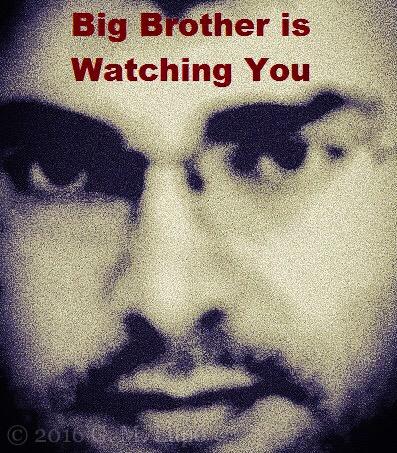
Beware the savage jaw of 1984.
–David Bowie
In his novel, Nineteen Eighty-Four, George Orwell presents readers with a society so repressive that even the mere thought of dissent is outlawed. Every citizen has a 24-hour monitoring device, the telescreen, installed in his or her home, and even the English vernacular has been altered to filter out the language of rebellion. Those engaged in the discussion over “political correctness” on college campuses and in political discourse in 2016 may feel they’ve entered the Oceania of Orwell’s narrative. Everyday conversations are scrutinized for hidden innuendo as even the most mundane of intentions are viewed with microscopic precision to ferret out the secret agenda lurking behind. In many offices throughout the US, for example, it’s no longer possible for a male coworker to compliment the appearance of his female counterparts without setting himself up for several sessions of diversity training at the very least. The heightened level of sensitivity to antagonistic points of view on college campuses generates much fodder for late night comics and network pundits.
Such attention to “correcting” one’s thoughts, can also be exploited by unscrupulous governments, anxious to control their populations. If a governing entity can teach its people to police their own thoughts to filter out any notion of dissent, then the state doesn’t need to police their behavior. In some instances throughout history, religion has served that purpose, training people to trust their subjective faith and obey those in authority rather than listening to objective facts, and in repressive regimes like the former Soviet Union, the state relied on endless sloganeering and the ever present shadow of the secret police to instill fear and compliance into the minds of its citizens. In less restrictive societies, those in charge utilize subtler means to insure people don’t get out of hand. The fact that people coexist peacefully is as much dependent on the tendency of individuals to avoid conflict as much as any conditioning on the part of the state. Politicians have realized that when people are reasonably content, they usually won’t work against the system that fosters their contentment. In the US, the only thing more deadly to one’s political career than being branded “a liberal” is to propose raising taxes.
Part of the problem with political correctness is that it functions outside the boundaries of jurisprudence, where a simple accusation is enough to irreparably tarnish a person’s reputation. If I brand someone a racist or a sexist, regardless of whether or not that person exhibits such tendencies, the person has almost no defense, and any attempt to dispute the charge is taken as further evidence of the person’s guilt. Often, worse consequences result, particularly in an era of rampant Internet shaming, where those unhappy with someone’s actions go on the attack at the flimsiest of provocations, exposing private details on an individual and launching threats and insults both aimed at the target and anyone who dares to defend the person. Jobs have been lost and people forced into hiding as a result of actions people on the Internet found offensive.
Despite the potential for abuse, in a diverse society, there is good reason to train people to be more sensitive to how their words affect others. Often, when one is raised in a homogeneous community that has had little contact with divergent points of view, one’s speech and attitudes tend to reflect the biases of that group. When one moves from that to the broader world, these biases can become problematic when dealing with people who are the focus of such attitudes. For instance, calling someone “gay” as an insult ignores the impact this attitude has on individuals who are gay or lesbian. Sometimes insulting words can become part of the vernacular of a given people, to “welsh” on a deal, for instance, or by using the term “ghetto” when discussing the inner city. Most people aren’t even aware of the cultural biases inherent in their speech and often become defensive when someone takes offense at a description or turn of phrase. Learning about diversity and how it affects the well-being of a community is vital to the efficient function of society, and recognizing the cultural biases in one’s own speech and attitudes is an important first step in contributing to a better experience for all.
We should not use the need for more cultural sensitivity to prompt us into creating greater problems than those we wish to correct. Critical thinking demands that one listen to diverse opinions, especially those with which one disagrees to formulate and refine one’s opinions. We should applaud the strides society has taken to recognize and protect previously marginalized communities, but while being sensitive to how we can best contribute to greater cultural awareness and harmony, we should not lose sight of the basic humanity in everyone, even those with whom we don’t agree.